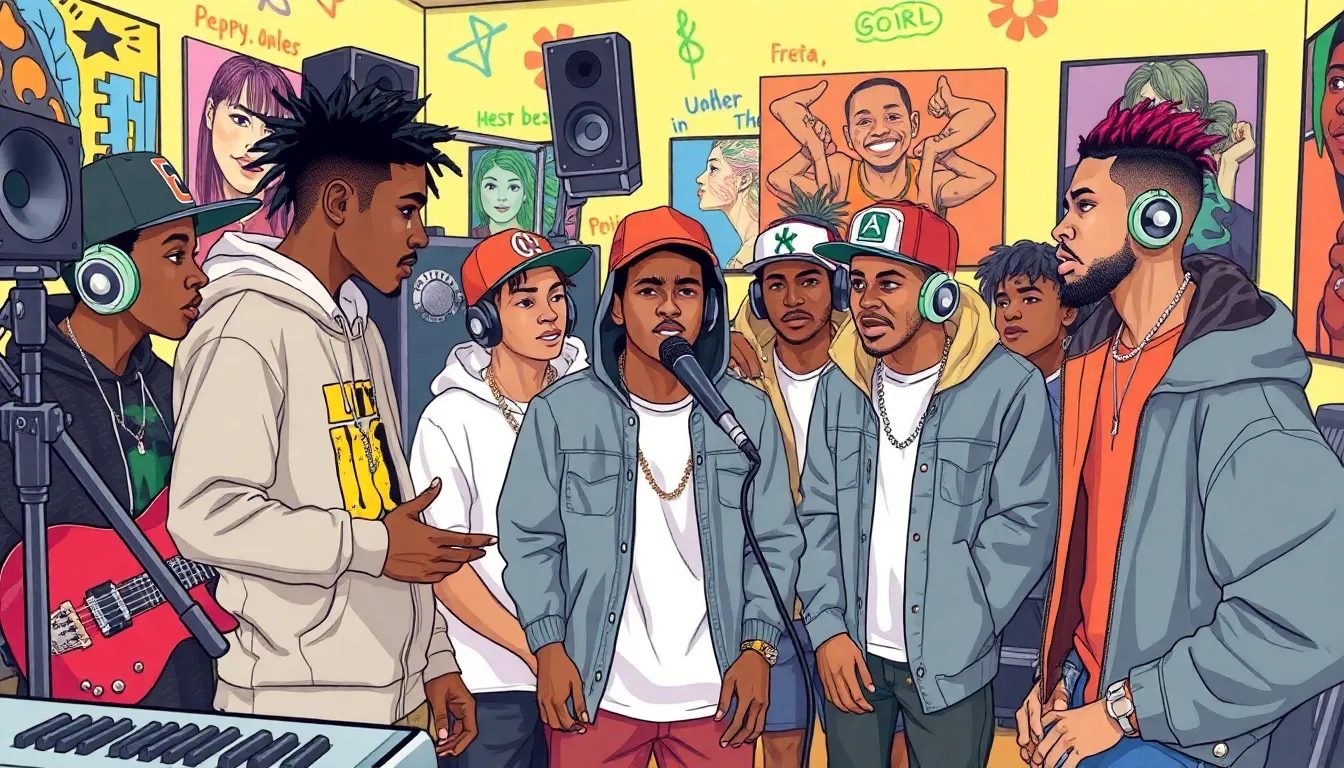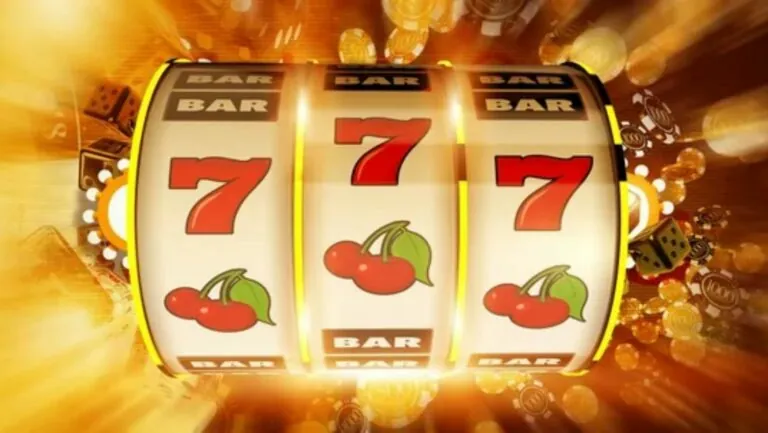Hip-hop mixtapes are the secret sauce that keeps the genre sizzling. They’re not just collections of tracks; they’re a vibrant tapestry of creativity, showcasing everything from fresh beats to lyrical masterpieces. Think of them as the mixtape equivalent of a chef’s special menu—each one offers a unique flavor that can surprise and delight even the most discerning palate.
In a world where streaming reigns supreme, mixtapes remind us of the raw energy and passion that fuels hip-hop. They’re the playgrounds where artists experiment, collaborate, and break the rules. Whether you’re a die-hard fan or a casual listener, diving into the world of hip-hop mixtapes is like opening a treasure chest of musical gems. Get ready to explore the beats, the bars, and the brilliance that make these mixtapes a cornerstone of hip-hop culture.
Table of Contents
ToggleHistory Of Hip-Hop Mixtapes
Hip-hop mixtapes hold a rich and dynamic history, reflecting the genre’s growth and transformation. They began as a means for artists to showcase their talents, gain exposure, and experiment with sound.
Early Beginnings
In the 1970s, hip-hop originated in the Bronx, New York. DJs like Kool Herc popularized the practice of mixing tracks at block parties, laying the groundwork for future mixtapes. Early mixtapes often featured DJ mixes, incorporating elements of disco and funk. Street culture and grassroots movements fueled the rise of these tapes, enabling emerging artists to reach listeners who otherwise lacked access to their music. With cassette tapes becoming a popular format, they allowed for easy distribution among fans.
Evolution Over The Years
Through the 1980s and 1990s, mixtapes evolved significantly. Hip-hop artists began releasing their solid bodies of work alongside unique blends of tracks. Prominent figures like DJ Clue and DJ Drama became known for their high-profile mixtapes, integrating original tracks with remixes and freestyles. The emergence of the Internet in the late 1990s revolutionized the distribution process. Artists utilized platforms like DatPiff and Audiomack, broadening their reach and changing how fans accessed these collections. As a result, mixtapes established themselves as essential tools for artists, from underground talents to mainstream icons.
Importance Of Hip-Hop Mixtapes

Hip-hop mixtapes hold significant value within the genre, serving as crucial avenues for artistic development and cultural expression. They support both seasoned and emerging artists, providing essential platforms for creativity and collaboration.
Platform For Emerging Artists
Mixtapes empower emerging artists to share their music without the constraints of traditional album releases. They facilitate exposure in a competitive landscape, allowing new voices to penetrate the industry. Opportunities abound for showcasing talent through featured collaborations and guest spots. Artists can experiment with sounds and styles, receiving critical feedback that fosters growth. Independent artists leverage mixtapes to build fan bases, gaining traction via social media and streaming platforms. Statistically, several breakout artists, such as Chance the Rapper and Lil Uzi Vert, gained recognition through influential mixtapes. These releases often propel careers, making mixtapes an indispensable tool for nurturing new talent.
Artistic Expression And Creativity
Artistic expression thrives within the structure of hip-hop mixtapes, offering freedom to explore diverse themes. The inherent flexibility allows artists to showcase different personalities, styles, and messages. Mixtapes often blend multiple genres, creating innovative soundscapes that challenge traditional boundaries. Creative collaborations enrich the experience, as artists step outside their comfort zones. Distinct tracks often feature remixes or freestyle verses that reflect unique perspectives on life, society, and culture. Mixtapes, especially those released by iconic artists, often become critically acclaimed, showcasing the genre’s evolution and diversity. Engaging narratives unfold through personal stories, establishing connections between the artist and their audience.
Notable Hip-Hop Mixtapes
Mixtapes represent pivotal moments in hip-hop, showcasing unique sounds and artistry. Several notable releases stand out for their influence and impact.
Classic Mixtapes That Shaped The Genre
DJ Clue’s The Professional redefined the mixtape format in 1998, featuring artists like Jay-Z and Nas. Lil Wayne’s Dedication 2 from 2006 showcased his lyrical prowess and creativity, solidifying him as a leading artist. Additionally, Comeback Season by Drake introduced a fresh sound that blended rap and R&B, ultimately setting the stage for his future success. Not to be overlooked, The Suffix by Big Sean included standout tracks that helped him secure recognition within a competitive landscape. Collectively, these mixtapes not only influenced their respective artists but also shaped hip-hop culture.
Recent Influential Releases
In 2016, Chance the Rapper’s Coloring Book garnered critical acclaim for its innovative approach to faith and hip-hop. The project emphasized his unique style and community ties, leading to significant mainstream success. In 2020, Eminem’s Music to Be Murdered By showcased a blend of sharp lyricism and varied production, reaffirming his status in the industry. Furthermore, Eternal Atake by Lil Uzi Vert in the same year featured experimental sounds and strong storytelling, capturing a new demographic. These recent mixtapes highlight the genre’s evolution while continuing to inspire emerging artists.
The Mixtape Culture
Hip-hop mixtapes play a vital role in shaping the genre’s identity and artistic landscape. They serve as a medium for creative expression and experimentation, fostering a sense of community among artists and fans.
The Role of DJs
DJs act as the heartbeat of the mixtape culture. They craft playlists that blend tracks and showcase emerging talent alongside established acts. DJ Kool Herc catalyzed this movement in the 1970s, when he began mixing records at block parties in the Bronx. Notable figures like DJ Clue and DJ Drama further popularized mixtapes in the 1990s. Their work not only promoted artists but also shaped the sound of hip-hop during pivotal moments. These DJs provide crucial platforms for underground artists, enabling them to gain both recognition and influence within the wider industry.
Digital Distribution and Streaming Impact
Digital distribution transformed mixtape accessibility. Platforms like DatPiff and Audiomack revolutionized the release process in the late 1990s. Artists can now share their work instantly with global audiences. Streaming services further enhance this accessibility, allowing listeners to explore diverse musical styles. Noteworthy mixtapes, such as Chance the Rapper’s Coloring Book, exemplify this shift. These tools empower artists to prioritize their creative vision without relying solely on traditional music labels. In doing so, they create new opportunities for musical innovation and engagement.
Hip-hop mixtapes remain a cornerstone of the genre’s evolution and creativity. They not only provide a platform for artists to express their unique voices but also foster a sense of community among fans and creators alike. The rich history and dynamic nature of mixtapes illustrate their importance in shaping the identity of hip-hop.
As artists continue to push boundaries and explore diverse sounds, mixtapes will undoubtedly remain vital tools for artistic expression. They offer opportunities for experimentation and collaboration, ensuring that the spirit of hip-hop thrives in an ever-changing musical landscape. Embracing the mixtape culture allows fans to experience the genre’s depth and richness, making it an exciting time to engage with this influential art form.


